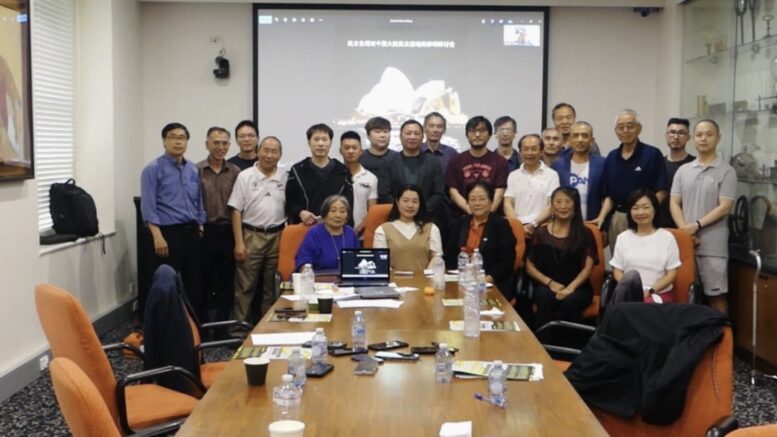Sydney: A two-day seminar hosted by the International Chinese Alliance for Democracy at the University of Sydney from 9 November brought together prominent Chinese democratic figures, scholars, and Taiwanese leaders to explore the potential role of Taiwan’s democratic model in inspiring democratic movements within mainland China. The event also featured the participation of Dawa Sangmo, the Chinese Liaison Officer of the Tibet Information Office (also called the Office of Tibet).
Moderated by Dr Jingjing Zhong, Chairman of the Chinese Alliance for Democracy Australia, the seminar aimed to not only discuss democratic ideals but also develop practical strategies for uniting pro-democracy forces towards a common objective.
The chief guest Wang Dan, a prominent leader of the Tiananmen Square pro-democracy movement, delivered a powerful address on the importance of strengthening the Chinese democratic movement. He outlined six key strategies for achieving this goal, which included building a strong support base, engaging more actively in local and national politics, and fostering unity among pro-democracy forces. He also commented on Sino-Tibet relations, expressing admiration for the Tibetan government-in-exile and suggesting that Chinese democrats could learn valuable lessons from the Central Tibetan Administration’s governance strategies.
In her talk titled “Sino-Tibet Civil Friendship and Its Path Forward,” Chinese Liaison Officer Dawa Sangmo acknowledged Taiwan’s democracy as a potential model for democratic reform in China. However, she emphasised the need for deeper collaboration between Chinese democrats and Tibetans, advancing their partnership to a “2.0 level.” Given the close geographical and historical ties between China and Tibet, she argued that it is crucial to recognise Tibet’s historical independence and its current status as an occupied territory. She also emphasised the support for the Middle Way Policy as a means to foster peaceful coexistence, advocating for mutual respect and constructive dialogue between the two regions.
The seminar was also attended by Chinese democrats from the US, including Liqun Chen, Vice Chairman of the Democratic Party of China National Committee; Xinmin Qing, Vice Chairman and Secretary-General of the International Chinese Alliance for Democracy; and Xiuhong Jing, Chairman of the Chinese Democracy & Human Rights Alliance. and it underscored a unified agreement on continued cooperation between democratic forces.



